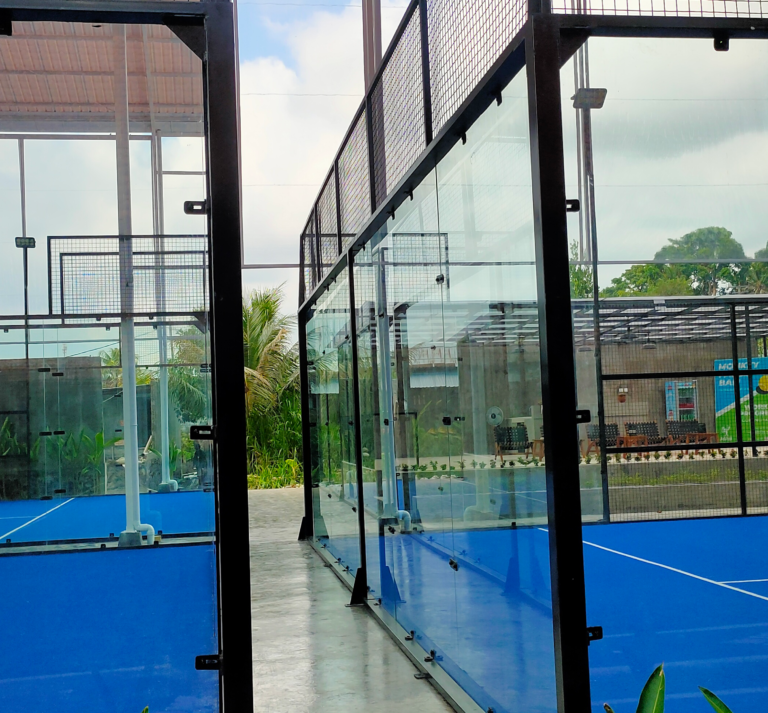Bali’s breathtaking beaches, verdant scenery, and rich cultural heritage make it a top choice for international investors and expatriates. For many, this dream extends to owning property on the island. Yet, the question often arises: ” Can foreigners buy property in Bali?” The intricacies of Indonesian law can seem daunting, leading to confusion and uncertainty.
This complete guide aims to clarify precisely how foreigners can legally buy or control property in Bali, ensuring your investment is secure and fully compliant. With extensive experience in Bali’s dynamic property market, we are ready to illuminate the path to your own piece of paradise.
Understanding Indonesian Property Law Fundamentals for Foreigners
Understanding Indonesian land law is crucial for Bali property ownership. Foreigners generally cannot directly own Freehold (Hak Milik) land, the strongest form of ownership, which is reserved for Indonesian citizens and entities. However, there are legitimate and secure alternative rights available for foreign individuals and foreign-owned entities.
Key Legal Rights (Hak Atas Tanah) Available to Foreigners/Foreign-Owned Entities:
- Hak Pakai (Right to Use): Provides a foreign individual or Indonesian entity with straightforward use of the land and control of land for a maximum period of 80 years (30, 20, 30 rule). Can be used for residential or commercial purposes and has the best security of right, but ownership transfer is slightly different to Hak Milik.
- Hak Sewa (Right to Lease/Rent): The easiest and most common method for individual foreigners wishing to hold property. This long-term lease with a Freehold owner typically between 25-30 years, usually with options to extend. You control and use the property for the lease duration, making ownership less convoluted and with much lower initial investment.
- Hak Guna Bangunan (HGB – Right to Build): Primarily for foreign-owned companies (PT PMA – Penanaman Modal Asing), HGB allows construction and ownership of buildings on state or other-owned land for commercial developments (hotels, resorts, villas). Like Hak Pakai, it’s granted for up to 80 years (initial 30, extendable for 20, then 30), requiring PT PMA establishment with specific investment and corporate setup.
A Critical Warning: Indirect Ownership Through Nominee Agreements
It is CRITICAL to avoid indirect ownership via Nominee Agreements. This illegal practice, using an Indonesian citizen’s name to hold a Hak Milik title on your behalf, carries extreme risks. It can lead to complete investment loss, severe legal disputes, and no legal recourse. We strongly advise against this dangerous practice; always pursue legitimate pathways.
Practical Pathways for Foreigners to Acquire Property in Bali
Translating legal rights into practice, here are the most common and secure pathways for foreigners to acquire Bali property for personal or commercial use.
A. For Individuals (Residential Use / Personal Investment):
As mentioned above, Long-Term Leasehold (Hak Sewa) represents the most accessible pathway for foreign investors. The acquisition steps include:
- Property Search & Negotiation: Identify property, agree on lease term (e.g., 25, 30, or even 50 years) and price with the Freehold landowner.
- Due Diligence: This critical phase requires thorough verification of the landowner’s legitimacy, authenticity of the Sertifikat Tanah (land certificate), compliance with zoning regulations, and validity of existing IMB/PBG building permits.
- Contract Signing: All legally binding agreements must be signed before a Public Notary (Pejabat Pembuat Akta Tanah – PPAT) to ensure legality and registration.
- Benefits: Hak Sewa offers simplicity, lower initial outlay, and is standard for residential villas.
- Key Considerations: Focus on lease duration, clear extension clauses (and pricing), land certificate validity, and proper building permits.
Hak Pakai (Right to Use – for individuals): Less common for private villa purchases, there are situations where Hak Pakai as individuals can be applied such as government-owned land, or a large development When applying to individuals, Hak Pakai grants very strong, direct legal ownership for 80 years, similar to HGB. However, given that Hak Pakai eligibility depends on meeting particular conditions, comprehensive legal assessment is essential before proceeding.
B. For Commercial or Larger Investment (PT PMA – Foreign Investment Company):
When it comes to commercial developments such as hotels or large villa complexes, creating a foreign-owned company (PT PMA) would be the safest, most reliable option.
- Establishing a PT PMA: essentially, this type is a Limited Liability Company, owned in part by foreign ownership – includes setting the company up, obtaining a business license by registering with the Investment Coordinating Board (BKPM), meeting capital requirements, and obtaining licenses. The PT PMA then holds land titles like HGB or Hak Pakai for its operations.
- Acquiring Property via PT PMA (HGB Title): Once established, the PT PMA acquires land, typically under an HGB title, with all legal ownership and liabilities resting with the company.
- Benefits: Offers stronger control and stability for large, long-term investments, allowing the company to own buildings and operate commercial ventures.
- Complexity: PT PMA setup and maintenance are significantly more involved legally and financially than individual leaseholds, requiring ongoing compliance.
Read Also : Top Locations for Profitable Villa Investment Opportunities
C. Off-Plan & New Developments:
Off-plan and new developments offer attractive opportunities. Foreigners can participate via:
- Pre-paid Lease Agreements: Common for individual villa purchases.
- Company Ownership: A PT PMA structure is often required for larger or commercial units.
Regardless of the pathway, Developer Due Diligence is paramount. Research the developer’s track record, verify permits (IMB/PBG), and ensure legitimate, unencumbered land titles.
Essential Steps and Considerations Before Buying
Acquiring property in Bali demands diligence and professional guidance for a secure investment. These critical steps are non-negotiable before committing.
A. Due Diligence (Non-Negotiable):
Thorough due diligence is crucial to avoid significant legal and financial risks.
- Land Title Verification: Ensure the land certificate (Sertifikat Tanah) is genuine, officially registered with the National Land Agency (BPN), and free from encumbrances.
- Zoning Regulations (RTRW): Confirm the land’s designated zoning (Rencana Tata Ruang Wilayah) aligns with your intended use (residential, commercial, tourism, or protected green belt).
- Building Permits (IMB/PBG): Verify valid Building Permits (PBG – Persetujuan Bangunan Gedung) for existing structures, or confirm obtainability for new construction.
- Vendor Identity & Authority: Confirm the seller is the legal owner with full authority to sell or lease.
- Local Regulations (Banjar Rules): Adhere to local community (Banjar) customary laws, which can affect building aesthetics, noise, and contributions.
B. Engaging Professionals:
Expert assistance is vital. Do not proceed without these trusted advisors:
- Reputable Notary (PPAT): A government-appointed public officer, legally required to authenticate property deeds, ensure tax payment, and register transactions with BPN, acting as a neutral party for compliance.
- Independent Legal Counsel: Crucial for protecting your interests; they review contracts, advise on ownership structures, identify risks, and negotiate terms
- Property Agent/Consultant: A knowledgeable agent helps find properties, provides market insights, assists negotiations, and guides the process, connecting you to reliable local resources.
C. Financial Considerations:
Beyond the property price, budget for:
- Taxes: BPHTB (Bea Perolehan Hak atas Tanah dan Bangunan – buyer, typically 5%), PPh (Pajak Penghasilan – seller, typically 2.5%), and annual PBB (Pajak Bumi dan Bangunan).
- Fees: Notary, legal counsel, property agent commissions, and due diligence.
- Ongoing Costs: Maintenance, utilities, insurance, and local community fees.
Read Also : Why Now is the Optimal Time for Build Villa in Bali
Conclusion
Bali’s foreign property ownership landscape, though nuanced, is entirely navigable and achievable with correct knowledge and trusted partners. By understanding the legitimate pathways—primarily through secure long-term leases or strategic company structures like PT PMA—your vision of owning a slice of paradise in Bali is well within reach, whether you choose to build a villa or purchase an existing one. With diligent planning, comprehensive due diligence, your Bali property dream can confidently become a secure and thriving reality.


















